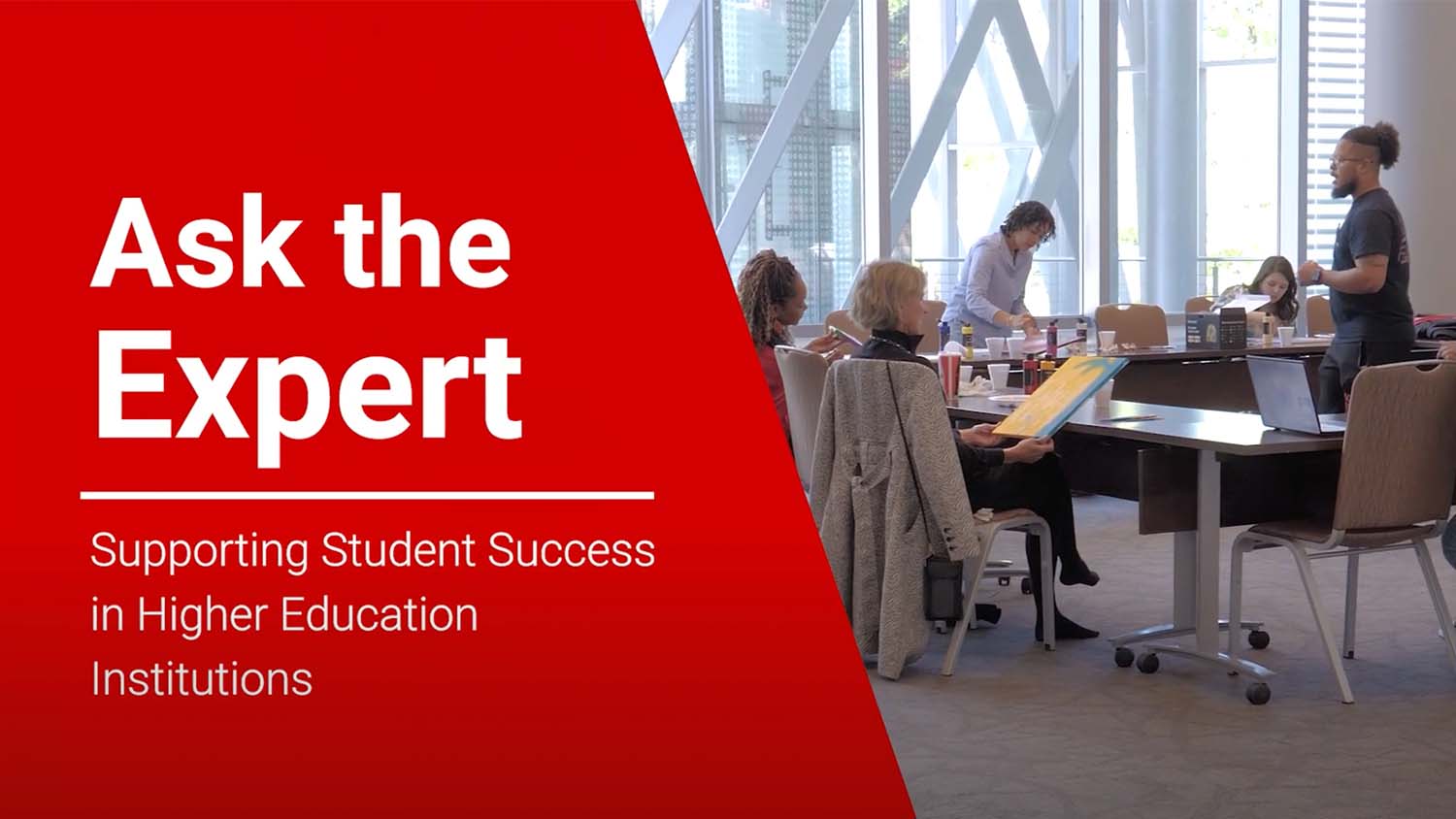Ask the Expert with Assistant Teaching Professor Krispin Barr ’13PHD on Supporting Student Success

Historically, student success at colleges and universities has been defined and measured in terms of how well students do academically and how many persist through graduation. While these are important metrics, NC State College of Education Assistant Teaching Professor of Higher Education Krispin Barr ’13PHD said student success in the age of artificial intelligence (AI) also involves the creation of welcoming campus environments that allow students to feel affirmed and seen and, therefore, engaged and supported in their learning.
“We know that, for many educators, we define student success not simply as graduating, but having a positive, life-changing, fulfilling and transformational experience during students’ time at our institutions,” Barr said. “In recent years, colleges and universities have necessarily expanded the definition of student success to take a broader, more holistic perspective on our goals for students to achieve success both inside and outside of the classroom — and on virtual platforms — so they can achieve their highest potential.”
Why Is It Important for Students To Experience a Positive Culture on Campus?
When students do not feel sufficiently engaged, affirmed and supported on campus, Barr said, the impacts on their learning and academic persistence can be detrimental. Students who do not feel supported often transfer to other institutions or withdraw from higher education entirely.
As we continue to emerge from COVID, according to Barr, students and their families are more aware of the importance of caring for their mental health and wellbeing play in supporting their ability to persist academically through graduation. Some students are still struggling with learning how to socialize in a healthy way following a few years of living in isolation, she said, which can present new challenges for students who grew up on social media expecting to have an idealized college experience.
Student culture outside the classroom, Barr said, often plays an important role in helping a student decide whether or not they feel at home in a particular campus community and want to stay. Having options for students to join clubs and organizations on campus or online that align with their personal interests and backgrounds, she said, can often make a huge difference.
Additionally, it is important that faculty and staff create learning environments — whether in person or online — that are welcoming, supportive and reinforce the idea that students are cared about and seen as valuable individual members of the educational community who can be challenged to achieve their highest potential academically.
Faculty and Staff Can Support Student Success By…..
Knowing Who Their Students Are and What Matters to Them
Knowing the student population well, Barr said, means faculty and staff can be intentional about creating campus settings, communities and online experiences that acknowledge students’ humanity and support their desires to learn.
For example, a city-based institution that serves students from cities, small towns and rural regions, like NC State, can help students who have never experienced an urban atmosphere feel more at home by preserving green spaces and access to nature trails around areas of campus.
Meanwhile, in the classroom, educators who take the time to get to know their students can tailor their instruction to make it more relatable. They can even use AI machine-learning tools to assess where individual students might be struggling to learn and customize assignments for students in ways that will maximize their learning.
“We can include information they can relate to in our teaching materials — making what we teach more relevant and useful for them for applying what they are learning to make a positive difference in our world — which directly supports our university’s educational mission,” Barr said. “We know it’s the people who work at colleges and universities who can positively impact students’ ability to be successful and achieve their highest potential in their personal and professional lives.”
Humanizing Students’ Experiences
“Maximizing the human element in all that we do is a superpower that can distinguish the college experience from learning in isolation, which will become increasingly important for educators as colleges and universities make the transition to educating students and providing a valuable return on investment in the age of AI,” Barr said.
While supporting a student’s academic success is crucial, Barr noted it is also important to think intentionally about how students can be taught and supported in ways that may be different from the faculty member’s own college experience.
For example, Barr recommends practices like providing assignment extensions for students experiencing hardships, such as natural disasters or traumatic events in their own lives. Offering these gestures while maintaining an overall high level of standards for academic performance and integrity can often be the difference between a student remaining enrolled instead of dropping out.
Acknowledging the way students are impacted by world events while they are attending college can also go a long way in helping to humanize the educational experience, Barr said.
“We know that during a student’s time in college, they will continue to personally experience the impact of what’s going on in larger society, and that the instability of our times can have unforeseen consequences on a student’s family finances, their mental and physical health and the ability to complete assignments,” she said. “We just need to embrace a paradigm shift to learn more effective ways to support student success that are in keeping with the world we are living in now.”
- Categories:



